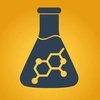Unlocking the brain’s ‘critical period’ with psychedelics to treat autism - and more!
Extensive research has shown that psychedelics can enhance the growth and connectivity of neurons in the brain by stimulating serotonin 2A receptors. When dysregulated, however, serotonin drives disorders like depression and autism.
Dr Gul Dolen from Johns Hopkins University has developed sophisticated mice models to investigate how these neuronal mechanisms are affected by autism genes during the ‘critical period’ of children’s development. This is an early childhood stage in which the brain is highly receptive to learning and susceptible to change. Once this window closes, brain structures become more cemented and resistant to change.
This research led to the groundbreaking discovery that psychedelics like MDMA and LSD can reopen the ‘critical period’ of neuronal development in adult mice. Pairing psychedelics with cognitive behavioural therapy (CBT) in rats with autism genes formed new neuronal connections and improved cognitive function. In the future, this could translate into ‘critical period rewiring’ therapies to treat social and cognitive symptoms that cause suffering for people with Autism.
Harnessing this ‘critical period’ also opens the door to a myriad of other therapies for diseases which are highly linked to neuronal plasticity, including allergies, autoimmune disorders and brain injuries like strokes!
Addiction & enhanced learning
An interesting comparison to the neuronal enhancing effects of psychedelics is that highly addictive drugs also promote new neural connections, but unlike psychedelics, this mechanism leads to dependence.
With this follows my warning that not everything that ‘promotes new connections’ in the brain is good, this statement simply means that your brain changes.
In the case of addictive drugs like cocaine, repeated use only strengthens and connects reward system synapses related to drug seeking behaviour. Drugs overwrite your thoughts with more drugs!
In contrast, psychedelics can enhance the brain's capacity for adaptive learning from stimuli and experiences in the environment. These changes, referred to as ‘metaplasticity’, can enhance the learning and benefits of psychotherapies, as is currently seen with PTSD and depression.
When I think ahead at the potential of fully manipulating these adaptive learning properties in 50 years, I am dreaming of the applications of psychedelics in helping us learn new languages, or maybe even psychedelic-assisted classroom settings in the future

